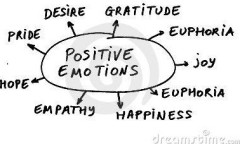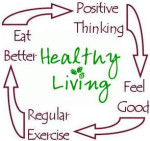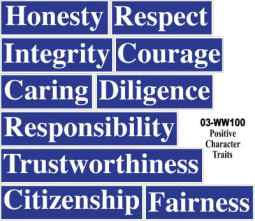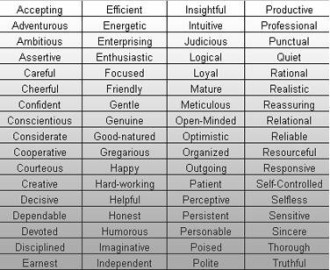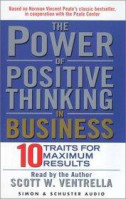Positive and Practical
Psychology
It is our pleasure, purpose, and goal to share Connection - Holistic Lifestyle - Alternative Healing Treatments - Living Happier with New Thought - from original sources.
GlobalCnet is a collection of links to original thought, research, new ideas and found expert advice. We have assembled extensive information and facts to inspire YOU to further your education, skills, and desires on your specific subjects. When you click on a blue link, you arrive on a web site, do your research, and observe all the other articles available to you. Record what you need. Share what you learned
GlobalCnet connected you, to make better-informed decisions.
This is a teaching and informative Web Site again, presenting original authors, like Harvard University, MedNet, Unstuck.com, Readers Digest, Mental Health and documents from millions of Web Sites which were written, published and illustrated with specific content to expand your knowledge for personal growth, health and answers. All this WWW content was meant for your reading and answers,
GlobalCnet just connected you.
It is our hope that you use all information for further answerers, ideas for more exploration, and the wisdom to share discoveries with others. It is all about having the right fast or safe connections. Everything has already been discovered, be smart, and use proven methods and spin your solutions to fit your needs.
Any questions, comments or to just say hello...leave a webmail .
Quick links to information and new ideas. click here.
OK...you are now on GlobalCnet. You can use the SEARCH BAR to quickly find subject information, or you can visit all the pages. Your visit will award an organized starting point leading to answers to your challenge.......just do it. Type in a word and hit search.
- Michael J. Malette, PhD
Founder, Global Connection Network, Inc.
--------------------------------------------------------------------------------------------------------
Destiny is not a matter of chance, it is a matter of choice.
It is not a thing to be waited for, it is a thing to be achieved.
- William Jennings Bryan
Positive Psychology is the scientific study of the strengths and virtues that enable individuals and communities to thrive.
Practical Psychology is the action steps we can feel and trust in a particular situation.
It is that Intuitive "gut feeling" that we know should be our next step.
Positive psychology is one of the newest branches of psychology to emerge.
This particular area of psychology focuses on human prospering.
While many other branches of psychology tend to focus on dysfunction and abnormal behavior, positive psychology is centered on helping people become happier.
Positive Psychology has three central concerns:
- Positive Emotion
- Positive Individual Traits
- Positive Institutions
- Abnormal Psychology
- Developmental Psychology
- Happiness
- Health Psychology
- Industrial Psychology
- Memory Enhancer
- Neuroscience
- Online Psychology Programs
- Parenting
- Personal Development
- Personality
- Relationship
- Sleep
- Social Psychology
- Study Hacks
Are You Toxic?
10 Ways to Tell (And How to Stop)
If you find yourself wondering why some of your relationships have ended, it might be because you’re exhibiting some toxic behaviors.

We were both adamant about not dating for a year, but not even six months into it, she started talking to a few guys who kept breadcrumbing her.
“Why do you keep talking to these stupid guys?” I railed her.
“Because I want to! What’s the big deal?” she snapped.
You can probably tell where this is going. The more she chased after these dudes, the more jealous and possessive I got.
I wanted her to be my friend and only my friend. I didn’t want to share her, and eventually, it became too much, and she drifted away from me.
That’s hard for me to write because I remember feeling so lonely and hurt that the only close friend I’d had in a few years was now moving away from me.
I didn’t have the kind of supportive community everyone needs to grow and thrive, and that came out in some behaviors I now know (thanks to therapy) were very unhealthy.
One of the definitions of the word “toxic” on Urban Dictionary is, “a word describing any destructive behavior or personality.”
It is important to differentiate a toxic “person” from a toxic “behavior.” Someone who commits a toxic “behavior” isn’t toxic; we aren’t the sum of one or even several ugly behaviors.
We all make mistakes, and we all likely lack some self-awareness too.
I wasn’t aware at the time of how toxic I was being with that friend because I was stuck in my emotions.
I didn’t want to be alone again, and that’s what motivated me to act the way I did.
If you find yourself, like me, wondering why some of your relationships have ended, it might be because you are exhibiting some toxic behaviors you’re not aware of. Here are ten major ones:
1. People avoid you or end their relationships with you.
This is often the first indicator that something is wrong. If you keep having relationships end abruptly, it might be because you’re harming them in some way.
People will make an effort to spend time with you if they enjoy it. If they don’t, they’ll make an effort to be as far away from you as possible.
2. You’re judgmental and hypercritical of other people’s choices.
Whenever we’re judgmental of other people, we’re implying we’re better than them, and no one likes to feel inferior to someone else.
“I can’t believe you’re talking to that guy again,” I told my friend.
“I know,” she said. “I just like him, and he did send me a text…”
People need the freedom to make whatever choices they want to without judgment from their friends and loved ones.
Making mistakes is how we all grow and change. No one is going to handle something perfectly, and I can’t assume or act as I know better when I make just as many mistakes.
3. You’re controlling.
Do you try to make other people do what you think they should? Are you blunt and rude even?
It’s all about your intention.
If you’re purposefully trying to have power over another person, you’ve become controlling. You aren’t letting other people be who they are, and no one wants to be changed.
4. You don’t apologize.
Asking for forgiveness is an amazing way to be vulnerable with another person. You’re admitting you weren’t perfect in front of someone else, which can be scary but is important for building and fostering intimate relationships.
If you choose never to apologize, even when it’s obvious you were at fault, then there’s no chance you’re going to build an intimate relationship. You might not realize this is what you’re doing, but if the words, “I’m sorry” don’t pass your lips, and instead you keep making up excuses or doing #5, then you’re not a person most people would want to be close to.

5. You’re never responsible for anything.
Life is unfair, but if you find that you are always the victim, then it’s likely your thinking, not your life, that might actually be the problem.
For example, you might find yourself saying something like, “My boss just won’t leave me alone! I don’t understand why she’s always up my ass!”
Well, what’s the deal?
Is your boss really unfairly targeting you, or is she just trying to hold you accountable for showing up for work on time and you don’t like it?
Is there some part of this equation that you should look at?
No one cares to be around victims.
Life is hard enough that we don’t need to hear constantly about anyone else’s problems.
6. You’re a taker instead of a giver.
When someone is kind to you, it’s always good to consider, “When was the last time I was kind to someone else?”
Like if someone gives you a thoughtful gift, maybe you need to consider someone in your life who could benefit from receiving something from you, even if it was just a nice note.
We can’t always be focused on what we can get from others.
We do have to start looking at how we can help other people too.
If you look back over the last three months and you can’t remember the last time you did something for someone else, you’re a “taker.”
Often people get exhausted “giving” to someone who never reciprocates.
7. You take things personally.
Your friend is going through a rough time and they ask for some space.
Instead of respecting their request, you assume that they’re mad at you and not being honest.
You’re hurt, and you decide to retaliate.
You blow up their phone.
Call them selfish and bring up things they told you in the past (“You told me your mom used to do this all the time. I can’t believe you’re now doing this to me!”).
You talk badly to everyone around them.
Not everything is about you, but when you make it that way, you ensure other people are not going to want anything to do with you.
8. You don’t celebrate the success of others.
I used to think that life was a zero-sum game like if someone got something, that meant I wasn’t going to get it too.
If someone got a book deal, a job, had a baby, etc., I thought that meant that the cosmic muffin in the sky had given MY gift to them.
Because I thought I was being “deprived,” I wasn’t happy if people got something, even if I knew they deserved it.
I couldn’t get over feeling like they were walking away with what I was supposed to get.
Friends and loved ones need to show love and support for one another, and we aren’t doing that if we don’t make sure to celebrate the good stuff.
9. You can’t keep a secret.
Open and honest communication is necessary to building healthy relationships. Divulging the secrets your people share with you is thus a major form of betrayal.
We often might find ourselves wanting to share secrets because we love gossiping or we don’t really care about the person, so we just want the goods on them.
If someone is gossiping TO you, they’re gossiping ABOUT you.
The only way to have healthy honest relationships is to be trustworthy.
You can’t do that if you run your mouth whenever you learn someone’s darkest awful.

10. You make passive-aggressive comments.
Healthy relationships begin at the intersection of trust and safety.
We can build both trust and safety by communicating clearly.
Making passive-aggressive comments, though, is the exact opposite of clear communication.
Passive-aggression is actual aggression that is spilling over. It usually means that we’re hurt and angry and need to communicate something directly to our friend, loved one, etc.
Here are some examples:
“Why are you getting upset?”
“I was only joking.”
“I told you I’m fine.”
These sorts of comments throw the other person off-kilter and make them wonder wtf is going on.
How To Stop
If you can relate to any of the points I listed above, you’ve done the first step by identifying some of your toxic behaviors. We can’t change things we aren’t aware of.
To move forward and reduce and then eliminate these undesirable actions, work on recognizing why and when you act out on these behaviors.
Is it only when you’re around certain people or settings? Is it because you’re feeling fearful? Deprived?
Are you wanting to fit in?
Or are you being just a little self-centered?
If you struggle to figure this out or want to make sure you tackle these issues, get help.
I personally got a lot of benefit from working with a therapist.
Identifying ugly traits about yourself isn’t fun, but it’s necessary to make real lasting change.
Be kind to yourself. Know that things won’t get fixed overnight, but you can keep learning as you go.
One day hopefully, you’ll become the kind of person no one would ever call “toxic.”
4 Principles for Dealing With the Bad Days
With ‘side hustles’ on the rise, it’s important we look after ourselves
691 days.
That’s how long it’s been since I wrote my first article on the internet; the official start of my side hustling journey.
It’s safe to say a lot has changed, namely my goals.
It’s also true that nothing has changed at all.
A paradox, I know.
691 days later, I’ve realized that if you can sustain a side hustle for a decent period of time, you’ll need a mechanism for dealing with the tough days.
A reoccurring theme over the last few years is that the bad days come, regardless of place, mindset or wellbeing.
They always come and every time I’m as surprised as the last.
I think though, I’ve learned a few ways to deal with them.
1. Accepting that pain is part of the equation
Pain features quite heavily in the making of most bad days yet the relationship most people have with pain is confusing.
I was confused for a long time about pain.
I remember sitting on my living room floor, crying my eyes out because I hadn’t yet found out what I wanted to do with my life (yep, true story).
At that moment, in the midst of that pain, I thought I had done everything wrong.
It’s funny, that moment, in the depths of pain turned out to be one of the most pivotal, life-changing moments of my life.
It was by giving in to the pain and feeling completely vulnerable that I started to find my way.
The truth is that pain, even though it feels traumatic and awful at the time, is part of the process.
For me, accepting that pain is going to be part of the equation is a solid place to start.
Principle 1: Expect it to be hard.
2. Acknowledging the good in the bad
I’m just coming out of a little bit of burnout, more like a candle taring through its wick rather than a full-on forest fire.
Nonetheless, the flame has gone out.
Not because I’ve been working too hard after hours but more so because I’ve been psychologically piling on the pressure and it’s become a drain.
I was in a daze of expectations and inaction.
It was a constant cycle of feeling like a failure, finding evidence to feel more like a failure, I felt myself sliding further and further into the burnout hole.
On the third day though (today), I reemerged with new clarity.
I can objectively see, that I’ve done that thing again.
That thing whereby I pile on the pressure for no good reason and paralyze myself.
Years ago, this would have been a 2-week stint of inaction or enough for me to throw in the towel. But because I’ve been here so many times, the cycle is getting shorter.
That’s progress.
That’s the good in the bad.
Over the last 2 years, I’ve learned to understand that every experience, however bad it feels, can always be seen as progress.
Principle 2: Bad is not as bad as it seems.
3. You can feel the pain and find the good in it
It’s not about toxic positivity.
It’s not about avoiding negative emotions or apathy.
It’s not about reassurance or dismissing the gravity of a situation, of course not.
This isn’t an argument for smiling through the pain, I’m all for having a cry and saying the world needs to go in the bin.
I do it often.
I suppose this is about just after that.
When the rain stops and the clouds part.
Just then, that moment when you have the hope that the sun is about to come out.
It’s at that moment you look around and you say, you know what, things have been awful lately but, actually, here’s some good that has come out of it all.
Principle 3: After the rain, look for the sun.
4. Understanding burnout and your triggers
You are likely burning out because of the mental workout you're enduring.
“One hundred percent of the fatigue of the sedentary worker in good health is due to psychological factors, by which we mean emotional factors.”
- Dr. A. A. Brill
My burnout will be different from yours because although we collide on both being humans, my life will have been wildly different from yours.
My triggers will be your levers and vice versa.
My take is not to recommend that one size fits all and that if you simply follow these 4 steps you’ll never have a bad day again, nope, instead my theory is that if you work out what you’re triggers are, you’ll be able to avoid them.
The best way I’ve found to do this is to look backward.
My triggers, from doing a bit of a self-assessment, seem to be idolizing people that have become uber-successful.
Once I start going down the rabbit hole of YouTubers' yearly income report videos I know I’m in for a few bad days.
So I avoid them. The same is true for eating poorly a few too many days in a row, not working on my side projects, and spending too much time internalizing my life rather than living it. But those are just mine.
Principle 4: Work out your triggers.
At the end of the page
The bad days will come.
Part of the problem is thinking anything other.
When they do though, expecting them is the first step in accepting them.
Fearing them will only make their appearance worse.
It doesn’t have to be all doom and gloom though.
There is good in the bad if you care to look closely enough and you can reduce the number of those bad days by simply understanding who you are and what triggers them.
☂️ Join the movement at Occupation Happy, we’re growing fast!
10 “Notes to Self” that Will Stop You from Taking Things Personally
Written by Marc Chernoff

Let’s start off with a simple question:
Why do we always take things so personally?
There are admittedly quite a few viable and valid answers to consider.
But, the one Angel and I have found to be most common through a decade of one-on-one coaching with our course students, coaching clients, and live event attendees are the tendency we all have of putting ourselves at the center, and seeing everything — every event, conversation, circumstance, etc.—from the viewpoint of how it relates to us on a personal level.
And this can have all kinds of adverse effects, from feeling hurt when other people are rude, to feeling sorry for ourselves when things don’t go exactly as planned, to doubting ourselves when we aren’t perfect.
Of course, we are not really at the center of everything.
That’s not how the universe works.
It just sometimes seems that way to us.
Let’s consider a few everyday examples
…
Someone storms into the room in a really bad mood, huffing and puffing, and addresses us in a rude way. Immediately we think to ourselves, “What’s going on here?
I don’t deserve to be treated like this!
They should know better!”
And we are left agitated, offended, and angry.
But the truth is the other person’s behavior has very little to do with us.
They got mad at something outside the room, and now they’re reactively venting their frustrations in front of us.
We just happen to be in the wrong place at the wrong time.
This reality doesn’t justify their behavior, but it needs to be consciously acknowledged so we don’t waste too much of our mental energy positioning ourselves at the center of the situation and taking everything personally.
Now, let’s assume for a moment that a person’s actions actually do seem to relate to us directly — we inadvertently did something that annoyed them, and now they’re reacting very rudely to us.
A situation like this might seem personal, but is it really?
Is the magnitude of this person’s rude reaction all about us and the one thing we did to trigger them? No, probably not.
It’s mostly just a statement about this person’s reactions, snap judgments, long-term anger issues, and expectations of the universe.
Again, we’re just a smaller piece of a much larger story.
And likewise, when someone else rejects us, ignores us, doesn’t call us when they said they would, doesn’t show they care or flat out disrespects us… these reactions have much less to do with us than they have to do with the other person’s history of personal issues.
We can learn to silently respect them and their pain without taking their words to heart.
But, again, because we see everything through a lens of how it personally relates to us and ONLY us—a lens that does a poor job of seeing the bigger picture — we tend to react to everyone else’s actions and words as if they are a personal judgment or attack.
Thus, other people’s anger makes us angry.
Other people’s lack of respect makes us feel unworthy.
Other people’s unhappiness makes us unhappy. And so it goes.
If you’re nodding your head to any of this, it’s time to start gracefully deflecting the senseless negativity around you.
When you sense negativity coming at you, give it a small push back with a thought like, “That remark (or gesture, or whatever) is not really about me, it’s about you (or the world at large).”
Remember that all people have emotional issues they’re dealing with (just like you), and it makes them rude, rambunctious, and downright thoughtless sometimes.
They are doing the best they can, or they’re not even aware of their issues.
In any case, you can learn not to interpret their behaviors as personal attacks, and instead see them as non-personal encounters (like a dog barking in the distance, or a bumblebee buzzing by) that you can either respond to gracefully or not respond to at all.
But, of course, this doesn’t come naturally — NOT taking things personally is an ongoing daily practice…
“Notes to Self” for NOT Taking Things Personally
Like you, I’m only human and I still take things way too personally sometimes when I’m in the heat of the moment.
So, I’ve implemented a simple strategy to support the practice of watching my response.
In a nutshell, I proactively remind myself NOT to take things personally.
Anytime I catch myself doing so, I pause and read the “notes to self” displayed below to myself. Then, I take some fresh deep breaths…
If you’d like to practice along with me, I recommend stealing my notes, tweaking them as you see fit, storing them in an easily accessible location, and then reading and re-reading them whenever you catch yourself taking things personally. (Note: For the sake of not being tediously redundant, I only wrote “Note to Self” as a precursor on the first note below.)
1.

2.

3.

4.

5.

6.

7.

8.

9.

10.
 Afterthoughts… on Directly Addressing Offensive People
Afterthoughts… on Directly Addressing Offensive People
When someone insists on foisting their hostility and drama on you, just keep practicing — reading your “notes to self” and being an example of pure existence.
Do your best to respect their pain and focus on compassion. Communicate and express yourself from a place of peace, from a place of wholeness, with the best intentions.
With that said, however, sometimes handling offensive people directly is, well, necessary!
As mentioned earlier, Angel and I have worked with hundreds of course students and coaching clients over the past decade who were struggling through this very predicament.
And gradually, we guided them through several smart yet simple strategies that work wonders.
I want to briefly review a few of these strategies with you here, in hopes that you find value in them too…
- Take positive control of negative conversations. – It’s okay to change the topic, talk about something positive, or steer conversations away from pity parties, drama, and self-absorbed sagas. Be willing to disagree with difficult people and deal with the consequences. Some people really don’t recognize their own difficult tendencies or their inconsiderate behavior. You can actually tell a person, “I feel like you ignore me until you need something.” You can also be honest if their overly negative attitude is what’s driving you away: “I’m trying to focus on positive things. What’s something good we can talk about?” It may work and it may not, but your honesty will help ensure that any communication that continues forward is built on the mutually beneficial ground.
- Proactively establish healthy and reasonable boundaries. — Practice becoming aware of your feelings and needs. Note the times and circumstances when you’re resentful of fulfilling someone else’s needs. Gradually build boundaries by saying no to gratuitous requests that cause resentfulness in you. Of course, this will be hard at first because it may feel a bit selfish. But if you’ve ever flown on a plane, you know that flight attendants instruct passengers to put on their own oxygen masks before tending to others, even their own children. Why? Because you cannot help others if you’re incapacitated. In the long run, proactively establishing and enforcing healthy and reasonable boundaries with difficult people will be one of the most charitable things you can do for yourself and those you care about. These boundaries will foster and preserve the best of you, so you can share the best of yourself with the people who matter most, not just the difficult ones who try to keep you tied up.
- Make extra time for yourself. — Difficult people who wallow in their problems and fail to focus on solutions are obviously hard to handle. They want others to join their 24/7 pity party so they can feel better about themselves. And you may feel pressured to listen to their complaints simply because you don’t want to be seen as callous or rude, but there’s a fine line between lending a compassionate ear and getting sucked into their emotional drama. If you are forced to live or work with a difficult person, then make sure you get enough alone time to relax, rest, and recuperate. Having to play the role of a “focused, rational adult” in the face of relentless moodiness can be exhausting, and if you’re not careful, their toxic attitude can infect you. So remember that even people with legitimate problems and clinical illnesses can still comprehend that you have needs as well, which means you can politely excuse yourself when you need to. (Angel and I discuss this in more detail in the “Self-Love” chapter of our “1,000 Little Things” book.)
- Let them know that you, respectfully, do not care. — This one is essentially a last resort. If you’ve tried your best to communicate respectfully with a difficult person or to gracefully distance yourself from them, but they insist on following you around and attacking you for whatever reason, it’s time to speak up and tell them that their words are meaningless. In such situations, I challenge you to make this your lifelong motto: “I respectfully do not care.” Say it to anyone who relentlessly passes public judgment on something you strongly believe in or something that makes you who you are.
- If their offensive behavior becomes physical, it’s a legal matter that must be addressed. — If you’ve survived the wrath of a physical abuser in your family, and you tried to reconcile things… if you forgave, and you struggled, and even if the expression of your grief had you succumb to outbursts of toxic anger… if you spent years hanging on to the notions of trust and faith, even after you knew in your heart that those beautiful intangibles, upon which love is built and sustained, would never be returned… and especially if you stood up as the barrier between an abuser and someone else, and took the brunt of the abuse in their place – you are a HERO! But now it’s time to be the hero of your future. Enough is enough! If someone is physically abusive, they are breaking the law and they need to deal with the consequences of their actions.
And obviously, this is just one short blog post that doesn’t cover every possible scenario.

| The Power of Staying Positive |
|
Positive thinking dramatically increases your chances of success in any endeavor. Our thoughts are not simply ethereal pieces of information that enter our minds and then disappear. The words and ideas that we think can shape our lives and drive us toward success and happiness or failure and distress. How you think and feel can have a profound effect on your ability to recognize opportunity, how well you perform, and the outcome of the goals that you've set for yourself. When you maintain an optimistic outlook and make an effort to harbor only positive thoughts, you begin to create the circumstances conducive to you achieving what you desire.
You feel in control and few of life's challenges seem truly overwhelming because it is in your nature to expect a positive conclusion.
An optimistic mind is also an honest one. Staying positive does not mean that you ignore difficulties or disregard limitations. Instead, it means spending time focusing only on the thoughts that are conducive to your well-being and progress. When you're sure that you are worthy and that achievement is within your grasp, you start to relax and look for solutions rather than dwelling on problems.
You are more likely to imagine positive situations or outcomes and disregard the thoughts related to giving up, failure, or roadblocks. What the mind expects, it finds. If you anticipate joy, good health, happiness, and accomplishment, then you will experience each one. Thinking positively may sound like a simple shift in attention -- and it is -- but it is a mind-set that must be developed.
Whenever a negative thought enters your mind, try immediately replacing it with a constructive or optimistic one.
With persistence, you can condition your mind to judge fleeting, self-defeating thoughts as inconsequential and dismiss them. In order for positive thinking to change your life, it must become your predominant mind-set. Once you are committed to embracing positive thinking, you'll start believing that everything that you want is within your grasp.
|
What is the difference between Positive Psychology and Practical Psychology?
A great question requires a great answer. In my practice as A life Coach, a Positive attitude is absolutely necessary for any happiness or change. You can be miserable with a billion dollars, in the bank. You or I, for this moment we can very happy or content with a dime in our pocket.
Click on JAY Angel and get a lot of answers.
<---- <----
It is not how much you own, it is possibly about how much you share, do, and feel in this moment. WOW..... "A Child laughed, what could be the reason?", "Did you see a flower bloom?" "Did come up with another creative idea?
Make that journal and remember your creativity for later. "
You are perfect without a billion dollars".
While these are Positive thoughts, we sometimes have the make them Practical to work and build our success story. Click on JAY, the always ready little guardian angel in the picture above. He is always there inside your mind, JUST ASK WHY?
Can power over ou thoughts and actions be this easy, I say YES, what do you think.
Any questions, comments, or just say hello...leave a webmail .
4 Powerful Lessons You Gradually Learn as You Let Go of the Past
Written by Marc Chernoff

If somebody is working on themselves and changing for the better, it’s unnecessary to keep bringing up their past.
People can change and grow.
You know this is true.
But, have you given yourself a fair chance recently to change and grow, too?
Have you consciously loosened your grip on everything that’s behind you, so you can step forward again with grace?
If you’re shaking your head, you aren’t alone.
I know exactly how you feel.
I’ve been there myself, and I know dozens of others in the same boat.
At times, we all fall victim to our attachments.
And sometimes we don’t even realize we’re blocking our own present blessings by holding on to the past. Do your best to realize this right now…
Growth is painful.
Change is painful.
But in the end, nothing is as painful as staying stuck somewhere in the past.
Let me share a quick true story with you…
When Our Old Stories Hold Us Back
She rarely makes eye contact.
Instead, she looks down at the ground.
Because the ground is safer.
Because, unlike people, it expects nothing in return.
She doesn’t have to feel ashamed about her past.
The ground just accepts her for who she is right now.
As she sits at the bar next to me, she stares down at her vodka tonic, and then the ground, and then her vodka tonic.
“Most people don’t get me,” she says
. “They ask me questions like,
‘What’s your problem?’ or
‘Were you beaten as a child?’
But I never respond
Because I don’t feel like explaining myself. And I don’t think they really care anyway.”
Just then, a young man sits down at the bar on the opposite side of her.
He’s a little drunk, and says, “You’re pretty.
May I buy you a drink?”
She stays silent and looks back down at the ground.
After an awkward moment, he accepts the rejection, gets up, and walks away.
“Would you prefer that I leave too?” I ask.
“No,” she says without glancing upward. “
But I could use some fresh air.
You don’t have to come, but you can if you want to.”
I follow her outside and we sit on a street curb in front of the bar.
“Brrr… it’s a really chilly night!”
“Tell me about it,” she says while maintaining her usual downward gaze.
The warm vapor from her breath cuts through the cold air and bounces off of the ground in front of her.
“So why are you out here with me?
I mean, wouldn’t you rather be inside in the warmth, talking to normal people about normal things?”
“I’m out here because I want to be.
Because I’m not normal.
And look, I can see my breath, and we’re in San Diego.
That’s not normal either.
Oh, and you’re wearing old Airwalk sneakers, and so am I—which may have been normal in 1994, but not anymore.”
She glances up at me and smirks, this time exhaling her breath upward into the moonlight.
“I see you’re wearing a ring.
You’re married, right?”
“Yeah,” I reply.
“My wife, Angel, is just getting off work now and heading here to meet me for dinner.”
She nods her head and then looks back at the ground.
“Well, you’re off the market… and safe, I guess. So can I tell you a story?”
“I’m listening.”
As she speaks, her emotional gaze shifts from the ground, to my eyes, to the moonlit sky, to the ground, and back to my eyes again.
This rotation continues in a loop for the duration of her story.
And every time her eyes meet mine she holds them there for a few seconds longer than she did on the previous rotation.
I don’t interject once.
I listen to every word.
And I assimilate the raw emotion present in the tone of her voice and in the depth of her eyes.
When she finishes, she says, “Well, now you know my story. You think I’m a freak, don’t you?”
“Place your right hand on your chest,” I tell her.
She does
. “Do you feel something?” I ask.
“Yeah, I feel my heartbeat.”
“Now close your eyes, place both your hands on your face, and move them around slowly.”
She does. “What do you feel now?”
I ask.
“Well, I feel my eyes, my nose, my mouth…
I feel my face.”
“That’s right,” I reply.
“But unlike you, stories don’t have heartbeats, and they don’t have faces.
Because stories are not alive—they’re not people.
They’re just stories.”
She stares into my eyes for a prolonged moment, smiles sincerely, and says, “Just stories we live through.”
“Yeah… And stories we learn from.”
Lessons We Learn as We Let Go
The woman from the story above became one of our very first students when Angel and I opened the doors to the original version of the Getting Back to Happy Course nearly a decade ago, and she’s now a good friend of ours too.
She has learned and applied many remarkable lessons over the years that ultimately allowed her to let go of her heartbreaking past—her heartbreaking story—and move forward with her life.
And last night, I sat down with her over a glass of wine and had an in-depth, soul-centered conversation about what she has learned over the years.
I’m sharing her story and lessons with you today, with full permission, because I know we all struggle in similar ways.
Here are four key, actionable lessons we discussed…
1. You can have a heartbreaking story from the past, without letting it rule your present.
In the present moment, we all have some kind of pain: anger, sadness, frustration, disappointment, regret, etc.
Notice this pain within yourself, watch it closely, and see that it’s caused by whatever story you have in your head about what happened in the past (either in the recent past or in the distant past).
Your mind might insist that the pain you feel is caused by what happened (not by the story in your head about it), but what happened in the past is NOT happening right now.
It’s over.
It has passed.
But the pain is still happening right now because of the story you’ve been subconsciously telling yourself about that past incident.
Note that “story” does not mean “fake story.”
It also does not mean “true story.”
The word “story” in the context of your self-evaluation doesn’t have to imply true or false, positive or negative, or any other kind of forceful judgment call.
It’s simply a process that’s happening inside your head:
- You are remembering something that happened.
- You subconsciously perceive yourself as a victim of this incident.
- Your memory of what happened causes a strong emotion in you.
So just notice what story you have, without judging it, and without judging yourself.
It’s natural to have a story; we all have stories.
See yours for what it is.
And see that it’s causing you pain.
Then take a deep breath and another…
Inner peace begins the moment you take these deep breaths and choose not to allow the past to rule your present thoughts and emotions.
2. A big part of letting go is simply realizing there’s nothing to hold on to in the first place.
All of the things from our past that we desperately try to hold on to, as if they’re real, solid, everlasting fixtures in our lives, aren’t really there.
Or if they are there in some form, they’re changing, fluid, impermanent, or simply imagined storylines in our minds.
Life gets a lot easier to deal with the moment we understand this.
Imagine you’re blindfolded and treading water in the center of a large swimming pool, and you’re struggling desperately to grab the edge of the pool that you think is nearby, but really it’s not—it’s far away.
Trying to grab that imaginary edge is stressing you out, and tiring you out, as you splash around aimlessly trying to hold on to something that isn’t there.
Now imagine you pause, take a deep breath, and realize that there’s nothing nearby to hold on to. Just water around you.
You can continue to struggle with grabbing at something that doesn’t exist… or you can accept that there’s only water around you, and relax, and float.
Today, I challenge you to ask yourself:
- What’s something from the past that you are still desperately trying to hold on to?
- How is it affecting you in the present?
Then imagine the thing you’re trying to hold on to doesn’t really exist. Envision yourself letting go… and just floating.
How might that change your life from this moment forward?
3. The subtle pain you continue to feel can be healed through compassion for those suffering alongside you.
When we’re still working through a painful experience from the past, it’s easy to feel like we’re going through it alone—as no one else could possibly understand how we feel.
In a way, we subconsciously place ourselves at the center of the universe and see everything that happened exclusively from the viewpoint of how it affects us personally, without regard for anyone else.
But as we grow through our pain and gradually broaden our horizons, we begin to see that our self-centered thinking is only fueling our misery.
And we realize that shifting our focus onto others for a while can help.
It’s one of life’s great paradoxes: when we serve others, we end up benefiting as much if not more than those we serve.
So whenever you feel pain from the past trying to suck you back in, shift your focus from your circumstances to the circumstances of those near and far.
The simplest way of doing this at any given moment?
Practice letting your breath be an anchor for global healing…
Breathe in whatever painful feeling you’re feeling, and breathe out relief from that pain for everyone in the world who is suffering alongside you.
For example:
- If you’re feeling grief, breathe in all the grief of the world… then breathe out peace.
- If you’re feeling anger, breathe in all the anger of the world… then breathe out forgiveness.
- If you’re feeling regretful, breathe in all the regret of the world… then breathe out gratitude for the good times.
Do this for a minute or two as often as you need to, imagining all the pain of those near and far coming in with each breath, and then a feeling of compassion and reconciliation radiating out to all of those who are in pain as you breathe out.
Instead of running from your past and the pain it caused you, you’re embracing it… you’re letting yourself absorb it.
And you’re thinking of others as well, which gets you out of that miserable, self-centered mindset trap.
4. There is always, always, always something to be thankful for in the present.
Even when your past—your story—tries to pull you back in, you can consciously do your best to focus on your present blessings.
What do you see in your life right now?
Be thankful for it all.
For your health, your family, your friends, and your home.
Many people don’t have these things.
Also, remind yourself that the richest human isn’t the one who has the most, but the one who needs less.
Wealth is a mindset.
Want less and appreciate more today.
Easier said than done of course, but with practice, it does get easier.
And as you practice, you transform your past struggles into present moments of freedom.
Ultimately, happiness is letting go of what you assume your life is supposed to be like right now and sincerely appreciating it for everything that it is.
At the end of this day, before you close your eyes, smile and be at peace with where you’ve been and grateful for what you have. Life is good.
Your turn…
Again, the lessons above take practice to fully grasp in real-time, because oftentimes we don’t even realize we’re blocking our own present blessings by holding on to the past. So just do your best to bring awareness to this—to practice diligently—so you can gradually let go. Keep reminding yourself…
- You are not your bad days
- You are not your mistakes
- You are not your scars
- You are not your past
Be here now and breathe.
15 Things In Life That Aren’t Worth It
Pursuits, people, and more that lead to nowhere.
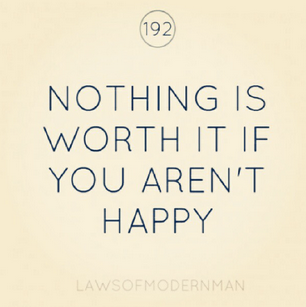
There are many things in life we do, we want, or we have that just aren’t worth the time, effort, and mental turmoil that comes with it.
Often, I learned the hard way that the risk was never worth the reward. Because while they might look appealing — and they might be things we’re trained to…
Here are the things in life that aren’t worth it based on my experiences and lessons. I encourage you to read these with an open mind: They might help you avoid a lot of problems in the future.
Chasing the Perfect _______
The perfect partner. The perfect body. The perfect job. The perfect home.
There’s no such thing as perfect.
Look, it’s admirable to seek high standards and try your best.
But your best isn’t perfect either. Perfection will never be attained and focusing on the “gap” between you and your ideal will always leave you falling short.
Instead, we should ask why we often feel the need to prove ourselves in the first place. Embrace your unchangeable imperfections.
Life, ultimately, is a balance between effort and surrender.
“Ambivalent“ Friends
We know toxic relationships are bad, but “ambivalent” relationships — ones where you feel positive and negative emotions — can cause similar issues.
With friends like these, I often felt worse after spending time with them.
Maybe you like them for various reasons, but they also lie, cheat, insult you, knock you down, or cause more stress in your life.
The good, however, doesn’t outweigh the bad.
Ultimately, nothing impacts your happiness and health more than your relationships so be selective of your friends.
Often, you don’t realize how much certain people affect you until you remove them from your life.
Trying to Convince People Who Won’t Listen
I know, I know — if you could just explain everything to someone, they would finally agree with you… right?
Wrong.
If someone isn’t receptive, do you really think you’ll change their mind?
Chances are, you’ll just upset them and upset yourself while accomplishing nothing.
I have no research to back this up, but I’ve noticed the people who argue the most are usually those who are most self-righteous about everything.
Do you need everyone to agree with you?
If so, maybe you need to look at yourself and ask why.

Chasing People Who Aren’t Interested
Maybe this sounds familiar: You like someone and want to be their friend, date them, work with them, etc., but they just don’t put the same effort in return.
Yet because you like them, you’re willing to keep trying.
Whenever I’ve done this, it failed.
No matter how much I wanted to be someone’s friend, if they didn’t have the same level of interest in return, it just didn’t work — and I had to accept that they didn’t care as much as I did.
Realize what’s going on, let go, and look for something better.
Proving Yourself
The more I learn about life, the more I realize that virtually all of us — to some degree — try to prove ourselves and try to seek approval.
Unless you want to be a monk, I’m not sure you’ll ever be completely free of this desire because it’s so embedded in our world.
But it’s never worth it.
Doing things in order to show off how great, accomplished, or successful you are is a vain pursuit that leads to nowhere. Instead, try to become aware when you’re doing it; that way, at least, you can control your compulsion, not let it control you.
Playing the Victim
I used to blame a lot of things for my struggles, and I spent a lot of time wondering why other people got certain advantages, had life easier, etc.
Yet it did nothing for me and only came from low self-esteem and insecurities.
Worse, by being a victim, I empowered outside factors, wasted energy, and felt angry and resentful.
Yes, there are institutionalized obstacles that are unfair and prejudiced.
But I still had so much in my control—I could still capitalize on my opportunities, work hard, learn, and more.
Take full ownership of your life. Do what you can with your circumstances.
Once you do, you empower yourself, stop wasting energy on unchangeable things, and start getting results.

Watching Others
Often, social media is less about sharing content and more about observing others.
Yet the more you watch others, the worse you feel about your own life and the more you feel behind, even though you have no idea what their lives are really like.
“If we only wanted to be happy, it would be easy; but we want to be happier than other people, which is almost always difficult, since we think them happier than they are.”
— Charles de Montesquieu
The sad truth is many people exaggerate their lives on social media.
Don’t fall for this trap.
Stop watching others and wondering why your life can’t be more like them.
Tune out the noise and focus on your priorities.
Chasing “Quick Money”
Gary Vaynerchuk — who I don’t always agree with — has a quote I like: “Fast money is dangerous money.”
Look, there’s nothing wrong with pursuing wealth, taking risks, etc.
But if you’re only chasing trends or activities to get really rich really fast, it probably isn’t worth the risk.
Do your homework.
Talk to experts.
Challenge your assumptions.
Protect the downside.
Don’t put all your eggs in one basket.
And live to fight another day.
Trying to Change People
You cannot change people.
You cannot remake people into who you want them to be. It’s not worth the effort.
I know people who have bad relationships with their parents, but they desperately hold onto the hope that, if they just say or do the right thing, their parents will eventually give them the love they’ve craved their entire lives.
But it’s sad to watch because, ultimately, they can’t make their parents change.
Sure, if someone you care about is doing self-destructive things, you can say something and try to get them help.
But they are the ones who are going to change themselves — and it’s up to them to listen.
Remember: The only person that’s ever going to need to change is yourself.
Letting People Walk Over You
I used to let people do this because I was afraid to cause problems, offend people, or create situations I couldn’t handle.
Yet every one of those moments led to regret and self-defeating emotions.
Sure, there’s no need to fight over every little inch.
But for the big things in life, it’s never worth it to bite your tongue just to “keep the peace.”
I’ve learned that it’s vital to stand up for yourself because the universe is always listening.

Putting on a Mask
Many of us — myself included — were taught to smile when we feel bad.
We were taught to hide our uncomfortable emotions because we think they’re “bad,” people don’t want to hear them, or people will reject us.
So we put on a mask so that the world can’t see how we feel inside.
But it takes energy to put on this mask.
It takes energy to build the mask.
And the mask just isn’t worth it.
“We pay a price for coping — we’re great on the outside and we suffer on the inside.”
— Dr. John Sarno
This isn’t an excuse to be mean to others or explode over little things.
But if you’re bottling up your emotions and hiding from reality, take off your mask and be honest and vulnerable.
You might ruffle a few feathers, but over time, you’ll attract the people you want and push away the people you don’t.
Unsafe Sex
Years ago, when I worked at a commercial gym, I had four male coworkers who, at some point in their lives, got someone pregnant and continue to deal with the consequences of their actions.
And it’s not just pregnancy: Is the worry and fear of waiting for your STI test results worth it?
I’ve never written anything like this on Medium so I might be subjecting myself to a lot of criticism, but I don’t believe it is.
Remember: There are many ramifications that could last the rest of your life.
Holding a Grudge
In my life, people have done some really awful things to me.
(And no, it was not easy to “get over it and move on.”)
But take it from me: The only thing a grudge does is destroy you from the inside.
Resentment, hatred, and bitterness don’t affect the person you loathe; they affect you because you’re the one thinking it.
You don't have to like this person or what they did, but if you want to move forward and be free, eventually, you have to forgive.
Beating Yourself Up
Speaking of forgiveness, often, the person we need to forgive the most is ourselves.
Using myself as an example, I grew up with very critical parents (which is very common among Asians).
As a result, I learned to get down on myself after any little perceived mistake and blow it out of proportion.
If you make a mistake, admit it, accept the consequences, and learn from it.
But there's no need to wallow in guilt or self-loathing.
It won’t make the lesson any better and, if anything, it’ll hurt your self-esteem and confidence.

Waiting to Be Ready
Many people want to do something big, but they’re waiting for their schedule to get less busy.
They’re waiting until they lose 10lbs.
They’re waiting for their friend to join them.
They’re waiting to have everything “figured out” before they start.
But if you’re waiting for those things, you’ll be waiting for a long ass time.
Instead, it’s better to get started now and “figure it out” along the way.
Sitting, waiting, and hoping is never worth it.
Patience is a virtue, but delaying things out of fear and indecisiveness is not. It’s a fine balance.
My life didn’t start changing rapidly until I realized how fast time goes.
In one moment, I was 23 — the next, I was 33. Is it really worth it to wait?
I think not.
Start taking action and your life will change more than you can imagine.
-----------------------------------------------------------------------------------------------------
10 Creative Ways to Keep a Positive Attitude No Matter What
Written by Swetha Amaresan @swethamaresan

Even if you love your job, there are times when things get negative..
You may get bogged down by an angry customer, a support error, or a feeling of lacking of productivity.
While it’s easy to fall into a slump based on one negative experience, it can be just as easy to redirect your mind and, instead, focus on the — hopefully more — positive experiences.
In this post, we’ll go over what a positive attitude looks like, the methods you can use to cultivate and keep a positive attitude, and the best quotes that can help you maintain a positive outlook in work and life.
Positive Attitude
Having a positive attitude means being optimistic about situations, interactions, and yourself.
People with positive attitudes remain hopeful and see the best even in difficult situations.
In contrast, those with negative attitudes may be more pessimistic and disagreeable, and typically expect the worst outcome in tough situations.
While having a positive attitude doesn’t necessarily make you less stressed, it can equip you with the tools you need to cope with stress in a healthier way.
Let’s take a look at the ways a positive attitude can manifest in your work and personal life.
Why is having a positive attitude important?
If you have a positive mental attitude, you can deal with stress and negative situations in a much healthier way.
For example, you may not fear stress as something physically deprecating and dangerous, but as a means to a greater end.
Other benefits include creating actionable goals based on dreams, making and maintaining more positive relationships, and giving your immune system a well-needed boost.
A positive outlook manifests in the following ways:
You’ll be more optimistic.
Having a positive outlook naturally results in a more optimistic view of life. Rather than thinking “the grass is greener on the other side,” you’ll feel that you’re already on greener grass.
You’ll see the positive side to most situations, helping you deal with negative events.
You’ll deal with disappointments and failures more easily.
They’ll still be hard, but you’ll cope and bounce back.
Not only that, but you can accept that things turned out the way they did, rather than being in denial. Those with a negative attitude will dwell and ruminate over negative events.
You’ll be more empathetic and understanding toward others.
With a positive attitude, you learn to see the thoughts behind people’s actions and why they may have acted the way they did.
Rather than jumping to a harmful conclusion, you can understand where people may be coming from.
You’ll be more grateful.
A positive outlook will teach you to be grateful for the good things in your work and life.
You’ll approach every day with an appreciative mindset.
Clearly, having a positive attitude is immensely beneficial, yet it’s easier said than done.
By adopting some of the following tips, you can maintain a positive attitude through highs and lows and improve your work ethic.
10 Creative Ways to Keep a Positive Attitude
- Start a gratitude journal.
- Treat yourself to some self-care every day.
- Start every morning strong.
- Avoid spreading gossip.
- Crack more jokes.
- Take real breaks.
- Have something to look forward to after work.
- Practice meditation.
- Focus on the long-term instead of the short-term.
- Listen to music that matches your mood.
1. Start a gratitude journal.
There’s so much to be grateful for in life, so why not remind yourself of that on a daily basis?
A gratitude journal is a wonderful way to stay positive every day.
Once a day, you jot down at least three aspects of your day for which you feel thankful.
They can be as small as seeing a cute dog on your way to work or as large as getting an offer for your dream job.
Additionally, they can be something that happened to you on that specific day — such as getting yourself a large latte — or something that exists in your life always — like having a family who loves you.
Whatever you want to write is up to you.
All that matters is that you’re remembering to feel grateful every day.
By retraining your mind to think about all the good things in your life, you can develop a more positive outlook.
2. Treat yourself to some self-care every day.
It’s always important to take care of both your physical and mental health.
It can feel overwhelming when you’re working a full-time job that requires you to constantly interact with people — whether they be customers, prospects, co-workers, or managers — in high-pressure situations.
To keep moving forward with a positive attitude, it’s essential that you take a step back and treat yourself to something special.
Self-care doesn’t always have to involve a nighttime soak in the bath with candles and a glass of wine — although that sounds lovely, too.
Consider the ways you can unwind, de-stress, and have some “you” time.
Some examples are doing a face mask, watching a movie, baking, reading, calling a friend, getting takeout, or even just saying “no” to plans and, instead, staying in.
No matter what it is, you should get into the habit of practicing something every day.
By allowing yourself these moments of rest, you can ensure a more positive attitude when you’re on the work grind.
3. Start every morning strong.
It’s easier to maintain a positive attitude all day if you implement it right after opening your eyes in the morning.
That dreaded moment when the alarm goes off can often lead to irritation, which sets you on the path to have a negative attitude all day.
Instead, think about some ways to make your morning the best part of your day — especially if you’re not a morning person.
Consider waking up a half-hour or an hour earlier than usual.
This means getting into bed earlier, too!
Give yourself time to do the things you love but may not always have time for; go for a run, relish in a hot shower, have a cup of coffee, and actually make breakfast (and, no, granola bars and frozen waffles don’t count).
Put on your favorite music or show, or even whip out a book and start your morning doing something you love while enjoying a home-cooked meal.
When your morning is more productive and less rushed, you’ll be sure to head to work in higher spirits.
That morning glow will spread throughout your day, and then, the cycle can repeat.
4. Avoid spreading gossip.
To many, gossip is their bread and butter.
However, the mere act of saying things — whether or not they are true — behind someone’s back that you wouldn’t say to their face is negative.
In the workplace, gossip leads to an unstable, unsafe, and disagreeable environment.
After all, if you’re spreading rumors about your coworkers, chances are they’re doing the same about you … yikes.
It can be hard to avoid gossip, but simply refuse to get involved.
If someone tries to reveal a dramatic story about a coworker, decline and tell them you’d rather not participate.
While that may feel odd, you’ll actually find that you feel lighter when not carrying the weight of secrets.
And, when you’re not talking about other people, you can feel more confident that others are keeping their lips zipped about you. And that’s a reason to feel optimistic.
5. Crack more jokes.
Humor truly is the best medicine.
Laughter has great short-term results on your mindset and body.
According to the Mayo Clinic, laughter can increase endorphins, relieve stress, and release tension.
In the long-term, laughter — and the positive thoughts associated with laughter — can release neuropeptides, which fight stress and other serious illnesses.
It can also help you cope with difficult situations and make you feel happier.
By cracking more jokes, you can make humor out of potentially negative situations at work, and — at the same time — prepare your body and mind for a more positive outlook.
6. Take real breaks.
On a busy, eight-hour day, it can sometimes be difficult to find time for a serious break.
That means leaving the workspace, having a meal, and putting away all work-related information.
You are legally allowed to have a break, and you should never feel like that rest period is jeopardized.
Working for eight hours straight can make you feel sluggish and irritated. A break-even for 30 minutes — can re-energize you and make you more motivated to continue your work for that day. Give yourself time to refuel your positivity, and you’ll be sure to end the day on a better note.
7. Have something to look forward to after work.
You may be tired after a long day of work, but having something planned after 5 p.m. can make the day look a little brighter.
Whether it be with your coworkers, family, or friends, a night of fun can make the day go by a lot faster.
Your plans don’t always have to involve going out for drinks or dinner.
Even planning a Netflix marathon can put a silver lining on your workday.
The point is to craft your days to be more than just “work.”
By penciling in some fun time several days a week, you can find a healthy way to balance your personal and professional life.
8. Practice meditation.
Practicing meditation can do a lot to decrease stress and anxiety, as well as improve mental and spiritual health.
Proper meditation can decrease workplace anxiety for those in high-pressure work environments, such as in customer support or service.
Even five minutes a day is a great start to a meditation routine.
Practice deep breathing and clearing your mind.
Simple methods like this are effortless and will help you find balance in your life, as well as let go of the negativity and stress that you may experience on a daily basis.
9. Focus on the long-term instead of the short-term.
When a conflict arises — either with a coworker or with a customer — your immediate reaction might be to jump to the defense.
You want to protect yourself and garner respect, which is a good thing.
However, the more conflicts in which you partake, the more negativity will surround your life.
Instead, take a second to step back and view the situation from a third-party perspective.
Will participating in this conflict be beneficial in the long run?
Or, will it simply cause unnecessary stress and negativity at the moment?
Often, a customer is simply having a bad day, or a coworker is facing stress.
Rather than snapping back, you can practice empathy.
This might help you get to the root of the problem and end the conversation on a positive, lighter note.
10. Listen to music that matches your mood.
It seems ironic, but sad music may actually help boost your mood. According to a research study, many people tune into sad songs as a form of mood enhancement.
Many consider sad music to be “beautiful,” which helps people feel better.
In addition, sad songs can invoke memories, distract from negative situations, and carry strong messages.
A different study states that sad music might evoke positive moods because sadness somehow feels satisfying and cheerful when experienced through art.
So, listening to sad music might just lift your mood during or after a long, tough workday. Cue up some Adele, and let your negative mood disappear.
When you practice the above tips, you’ll find your attitude much improved.
And you’ll find that it comes out through your actions, too.
Take a look at some examples of what a positive attitude can look like in your work and daily life.
----------------------------------------------------------------------------------------
12 Mindfulness Hacks You Can Use in 24 Hours

Mindfulness is all the rage these days, and with good reason.
Practicing mindfulness has been shown to reduce stress and anxiety.
A new study from the University of Oxford even found that mindfulness-based cognitive therapy (MBCT) is as effective as antidepressants in preventing depression relapses.
What is Mindfulness?
What may at first seem like senseless hippie jargon is actually quite simple — mindfulness teaches an individual to observe his or her own behavior and thought process totally devoid of judgment. Individuals acknowledge their feelings and thoughts, then release them.
Mindfulness teaches individuals to be present in and embrace the moments of life, rather than be suffocated by the constant self-criticism and anxiety that so often plagues our minds.
12 Mindfulness Hacks in 24 Hours
Practicing mindfulness isn’t just for the Zen Buddhists, sitting in lotus flower positions on the tops of snow-capped mountains. In fact, you can practice numerous mindfulness techniques in a single day.
In the Morning
1. Start a Mindful Morning Routine.
When waking up in the AM, instead of going about business as usual and thinking ahead about the upcoming meetings, reports, and stresses of the day ahead, give attention to the physical elements of your morning routine. Feel the water on your skin when you shower, smell the shampoo and soap, notice how your brush feels as it smooths your hair, and hear the sound your toothbrush makes rubbing against your teeth.
2. Coffee Concentration.

Buddhist monks have a form of meditation involving a tea ceremony, in which monks devote utmost concentration to every aspect of the tea. You can do this with your own morning drink. Listen to the sounds of your coffee maker at it brews your drink and the smell the aroma. Study the color of your
coffee, watching how it changes when you add milk or cream. Feel the warmth of the mug in your hands. Then, finally, study the taste in measured sips. Eating and drinking are everyday practices we often take for granted, but they can easily become mindfulness exercises that can be utilized throughout the day.
3. Exercise to Connect With Body.
Exercise presents another opportunity for mindfulness, as you focus on your breathing, your form, and your body’s movement. If you’re running, listen to the pounding sound of your feet on the pavement. If you’re lifting weights, feel the cool metal bar in your hands. Don’t let negative thoughts and distractions slip in.
Afternoon Moments of Zen
4. Sketch a Doodle.
Grab a notepad and pencil, find a subject, and get sketching. Don’t write this one off believing yourself to have no artistic talent. Anyone (yes, really, truly anyone) can draw. It only takes practice. Choosing a subject is simple — you can even draw the Starbucks cup sitting on your desk.
Begin drawing by choosing a point on your subject to start drawing from.
Then, follow the lines of the object with your eyes and pencil. Study the subtle indentations, the gentle curves, and the shadows cast by the cup. Sketching is a great study in mindfulness, requiring concentration and awareness. Plus, your sketch can be as simple or as detailed as you’d like, serving as a great short or long break from constant screen time.
5. Take Time to Stretch.

Take a mid-day break from the office and step outside to do some basic stretching. Stretching is good for maintaining a healthy body, and taking the opportunity to study how your muscles move and feel is a great opportunity for mindfulness.
6. A Few Minutes of Deep Breathing.
Focused breathing is an often-cited mantra of meditation pros and yogis, and not without reason. We breathe constantly, but are almost always unconscious of its activity. Taking the time to focus on breathing helps individuals find connection with their bodies.
Try this almost laughably simple breathing exercise: Take a slow, deep breath in through your nose, breathing in air from your belly rather than your chest. Pause a moment, holding in your breath, before letting the air out slowly through your mouth. It’s that simple, just rinse and repeat!
7. Ongoing Check-Ins.
Pause regularly throughout the day and assess the state of your body and mind. How is your posture? Are you clenching your jaw? Are you thirsty? You may be surprised what you learn about yourself through these regular check-ins. Try to practice these mini check-ins every hour or so. Some individuals use periodic vibrating smart watch alarms to serve as quick reminders to collect themselves and refocus.
In The Evening
8. Take Out the Ear Buds.
When walking home from work or jumping on a bus, avoid the temptation to put in your ear buds. Instead, focus on what is happening around you. Hear the birds singing, listen to the children playing on the nearby jungle gym, and be fully present.
9. Meditative Mind Dump.
Dedicate 10–15 minutes to sitting down with just a pen and a pad of paper. Use this time to write out any and all thoughts that are swirling about in your mind. Not only will writing down your thoughts help clear your mind and relieve built-up stress, but you also may stumble upon some genius ideas that were previously buried.
10. Clear Mind (And Dishes) With Chores.
Arriving home to be greeted by mountains of dirty dishes is far from fun. Instead of attacking your dishes, laundry, and garbage duties with dread, turn those burdensome chores into mindfulness exercises. Feel the water on your hands (or gloves) and study the texture of the sponge as you go about cleaning dishes. Take care to concentrate on the shape and weight of the plates, bowls, and utensils as you clean them.
11. Get Lost In The Music.
Music can be another handy tool for practicing mindfulness as part of your everyday routine. Ideally, choose a song you’ve never heard before and hit play. Avoid letting your mind drift into thoughts about the song’s genre, artist, and lyrical meaning. Instead, simply listen with attention to the song, following the beats and crescendos while keeping your mind quiet.
12. Try A Guided Meditation.
As the mindfulness movement grows in popularity, more apps and resources are becoming available to aid you in your journey. Check out popular apps like Headspace and Calm. You may also try listening one of the many guided meditation videos on YouTube, which are especially calming when you’re getting ready to power down before bed.
What mindfulness tactics do you employ in your average day?
------------------------------------------------------------------------------------------------------------
--------------------------------------------------------------------------------------------
Moment of Love
To help spread this Moment of Love, click here. And don't miss our collection of inspiring news articles, videos, inspirational resources, and our heart and mind expanding free online courses providing rich inspiration and education. Thanks for taking this moment to invite heartfelt love into our lives and into our world.
Glad To Be Alive The Path To Adulthood – Healing The Pain Becoming The Adult Overcoming Loneliness – Part Two How To Overcome Loneliness How We End Up In Misery How To Deal With Loneliness Emotional Abuse Test Emotional Health – What Millions Still Don’t Know Emotional Insecurity Help You Have Emotion You Have Beliefs You Have Choice You Are Enough You Are Loved You Have A Heart
EMOTIONAL HEALTH –
EMOTIONAL HEALING –
EMOTION –
---------------------------------------------------------------------------------
Positive Emotions
How do you define positive emotions?
If we look at a whole range of positive emotions—from amusement to awe to interest to gratitude to inspiration—what they all have in common is that they are reactions to your current circumstances. Positive emotions have a kind of alluring glitter dust on them. You want to rearrange your day to get more of those sparkling moments.
Positive emotions tell us not just what the body needs but what we need mentally and emotionally and what our future selves might need. They help us broaden our minds and our outlook and build our resources down the road. Understanding positive emotions entails the study of contentment with the past, happiness in the present, and hope for the future.
Read more: How to Maintain and Enhance Positive Emotions
--------------------------------------------------------------------------------------------------------
Click this pic....
-----------------------------------------------------------------------------------------------------------------------------
<<<<< Click on any word to the left for exceptional information...
-----------------------------------------------------------------------------------------------------------------------------
→ Enjoying these psych studies? Support PsyBlog for just $4 per month (includes ad-free experience and more articles).
→ Explore PsyBlog's ebooks, all written by Dr Jeremy Dean:
--------------------------------------------------------------------------------------------------------------------------
Personal Growth Courses
Free Online Courses To Inspire Personal
Growth
The powerful lessons in these personal growth courses contain thought-provoking essays, quotes from some of the greatest thinkers ever, beautiful photos, moving
online videos, and empowering exercises designed to inspire and bring greater understanding and deeper meaning to your life. Promote your personal growth and treat yourself to the treasure chest of
inspiration and education here.
Additional Insight Courses - FREE
These thought-provoking lessons generally take one to two hours to complete. The purpose of every lesson is to empower us all
to be more effective and inspiring in building a brighter future.
------------------------------------------------------------------------------------------------------
Positive Individual Traits
Traits of human consciousness; or perhaps we can call them the endowments of human character, or simply character or positive individual traits.
Understanding positive individual traits consists of the study of the strengths and virtues, such as the capacity for love and work, courage, compassion, resilience, creativity, curiosity, integrity, self-knowledge, moderation, self-control, and wisdom.
Everybody has their own personal traits which can be determined arguably either hereditary or by the environment in which a person grew up in. They can be defined as the sum of the total physical, mental, emotional and social characteristics of an individual or by the pattern of thoughts, feelings and behavior which makes them unique.
Some people wake up excited to face the day while others pull the covers over their heads. Do you
realize your positive traits?
Attitudes toward life colors everything. Those who have a positive attitude do better at work, have stronger relationships with family and friends and get sick less often. Every individual is unique, but those with positive attitudes tend to share certain traits. Surrounding themselves with positive people, they manage to keep a youthful outlook no matter how old they are.
-----------------------------------------------------------------------------------------------------
Positive Institutions
The enhancement of strengths.
Understanding positive institutions entails the study of the strengths that foster better communities, such as justice, responsibility, civility, parenting, nurturance, work ethic, leadership, teamwork, purpose, and tolerance.
There are many types of individual strengths such as character, talents, skills and knowledge. By enchancing the use of one's strenghts in daily life, one can expect increased well-being. Organizations that support employees strengths discovery and use will find it is not only good for the individual, but for the business. Through your strengths you can find yourself in a state of flow, lose track of time, become absorbed in your work and function at the highest level of productivity.
What could be possible if your workplace was a positive institution?
- A high pathway to well-being is positive institutions. positive institutions enable your use of positive traits which enhance positive experiences and emotions.
- Part of the positive experience is finding meaning in what we do.
- While we experience positive emotions we build sustainable physical, psychological, emotional and social resources.
Read more: You have the Power
A Time and Place For Everything
Positive people do not fight every battle. Letting go of small issues will free up time to work on more important things. Sure, they may be disappointed that a co-worker got the better cubicle, but, at the end of the day, it doesn't really matter. Instead of complaining about their workspace, positive people focus on improving their performance. They know a sunny cubicle won't seem so important when they are sitting in the corner office.
Being Part of Your Community
Being a part of a community is sometimes taken for granted. Many of us have a baseline of social groups we have been a part of ranging from playgroups when small, school classes, work associates and friends mixed in between. But what if you haven’t had the opportunity to make connections with social groups you relate to? Or what if past relationships have faded away and you are suddenly having to “make friends” as an adult?
We should recognize that finding a social group that you want be a part of is not always easy. What if you are having trouble finding groups of people you can relate to? What if you can’t find programs where you feel you “fit in”?
Get involved!
Challenge youself to take advantage of the past experience to meet new friends, become a part of a welcoming and enriching community, or bring old friends together to reunite.
Volunteer - Community volunteering refers to volunteers who work to improve community enhancement efforts in the area in which they live. Neighborhood, church, and community groups play a key role in building strong cities from the neighborhoods up. Supporting these understaffed groups can enable them to succeed in a variety of areas, which connect social, environmental, and economic boundaries.
5 Quotes That Prove Life Is a Journey We're Meant to Take Together-----------------------------------------------------------------------------------------------------------------------------
More Resources:
Positive Psychology Center - University of Pennsylvania
A Brief Overview of Positive Psychology
LifePsych®.com - Bringing Positive Psychology to Life
The 7 Habits of Highly Effective People
Traits of Human Consciousness
Click on these direct Globalcnet links and find specific information fast... DO IT NOW.
- How we Connect, How a connection works, click here
- Our many LIFE CONNECTIONS, click here
- BE SMART, HEALTH/LIFE Questions answerd, click here
- Current NEWS click this link
- LIFE CHALLENGES on your specific needs, conditions, thoughts for you,
or a friend, click on this link and look to your left
- Answers to 1000,s of Medical and Life QUSTIONS, click here
- HARVARD UNIVERSITY Health Information, click here
- WEDMD answers your medical questions, click here
- Alternative Medicine and HEALTH IDEAS, click here
- CRITICALhealth for Chronic Disease, click here
- 55+ Healthy Living ideas, click here
- PAIN MANAGEMENT, click here
- Holistic Health, Lifestyle Canges, Healthy Aging, click here
- Staying Healthy, click here
- Getting your life UNSTUCK, click here
- Using POSITIVE Pyscology for Happier Living, click here
- HOME PAGE 100's of additional places to visit, BE SMART, learn
and start your journey on GlobalCnet enloy, click link
- Leave a Web Mail, a coment, question suggestions or just
to say hello. Was GlobalCnet helpful? Your ansers are all
appreciated, click here







